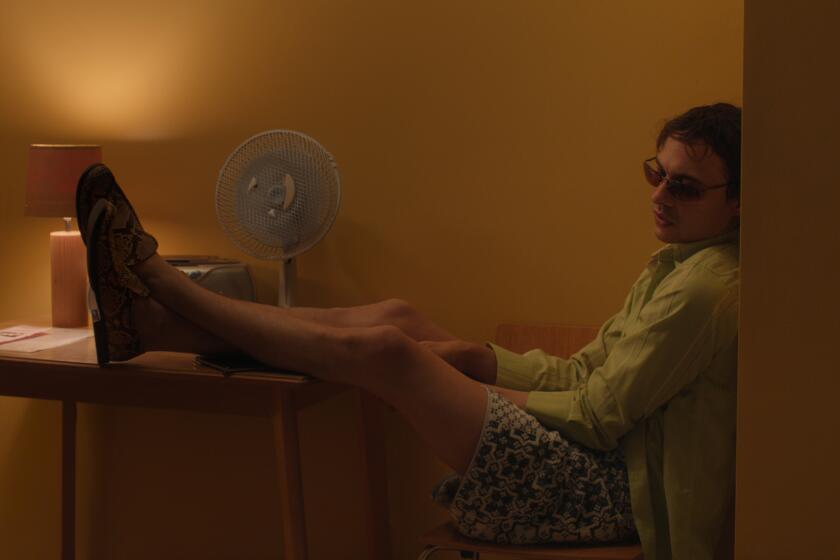Trace Lysette shines in the quietly powerful ‘Monica’

- Share via
Toward the end of “Monica,” the titular character’s brother looks over to her and mentions he still doesn’t know much about her life. The audience doesn’t know that much more about Monica either, but these details are unimportant in this quietly powerful film.
Directed by Andrea Pallaoro from a script he wrote with frequent collaborator Orlando Tirado, “Monica” is an intimate look at the complexity of grief, reconciliation and family. The film follows Monica, superbly played by Trace Lysette, as she returns home after learning that her mother, Eugenia (Patricia Clarkson), is terminally ill.
Beckoned by a sister-in-law she didn’t even know she had, Monica, who left as a teenager, is reintroduced to her mother simply as a new caregiver. Whether because of her brain tumor or because Monica has transitioned, Eugenia doesn’t recognize her now-grown child and it’s left to Monica how much she wants to reveal.
With sparse dialogue, much of the film’s emotional resonance comes in its quiet moments and what remains unsaid. And Lysette, known best from her roles in “Transparent” and “Hustlers,” carries the film with her remarkably nuanced performance. The film’s narrow, near-1:1 aspect ratio makes each shot feel particularly deliberate. Monica is generally captured in extreme close-ups or through windows and in reflections, so there’s often a sense of distance, even when the shot initially feels incredibly intimate.
Director Emanuele Crialese draws on his own childhood growing up as a trans boy in 1970s Rome for this beautifully affirming portrait of a boy’s relationship with his mother (Penélope Cruz).
What is particularly powerful is that the film does not feel the need to overexplain Monica. The film offers glimpses into her life, her relationships and her livelihood, but Monica doesn’t have to spell out the details of her past or justify her present to anyone. Instead, Monica is given room to choose how much she wants to share about herself to others and navigate the complex emotions of caring for someone who clearly hurt her in the past.
Monica is a trans woman, so her story and experiences reflect that — it’s implied that her identity at least contributed to her being rejected by her mother as a teenager — but the movie is not solely focused on Monica’s identity or others coming to term with her gender. And as conservative politicians and activists relentlessly attack the trans community and more and more state legislatures move to strip trans people of their rights and their humanity, a film like “Monica” is both a respite and rebuttal.
Regardless of whether Eugenia understands Monica is her child, she is able to acknowledge and appreciate Monica and her beautiful humanity. Wanting to be seen and appreciated by our parents for who we are is not an experience exclusive to the LGBTQ+ community, but it definitely resonates at a time when certain right-wing forces want to punish parents just for affirming and supporting their trans and queer children.
The only thing Monica’s brother Paul wants to know about his sister’s life is whether or not she is happy. And that really should be the only thing that matters.
'Monica'
Rating: R, for sexual content, nudity and language
Running time: 1 hour, 50 minutes
Playing: Starts May 12, Landmark Nuart, West Los Angeles
More to Read
Only good movies
Get the Indie Focus newsletter, Mark Olsen's weekly guide to the world of cinema.
You may occasionally receive promotional content from the Los Angeles Times.












